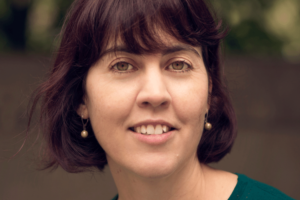

 d/Deaf and disabled people are inherently creative because they use lateral thinking and problem solving skills to live in a world designed for able-bodied people. In the past, Australian d/Deaf and disabled authors such as Judith Wright, Les Murray and Henry Lawson translated this creativity into their writing, and I was delighted to see this tradition continue in the submissions to Writing Place 2021. The three words of this year’s theme – ‘reflect’, ‘redefine’, ‘revolutionise’ – prompted an array of submissions in a range of forms, including poetry, short fiction and creative non-fiction. Writers reflected on their journeys with disability and the discrimination in our culture; they redefined their disability not as a burden but as something that adds value; and their revolutionary words agitated for change. Each of these responses to the theme shows insight and creativity at work.
d/Deaf and disabled people are inherently creative because they use lateral thinking and problem solving skills to live in a world designed for able-bodied people. In the past, Australian d/Deaf and disabled authors such as Judith Wright, Les Murray and Henry Lawson translated this creativity into their writing, and I was delighted to see this tradition continue in the submissions to Writing Place 2021. The three words of this year’s theme – ‘reflect’, ‘redefine’, ‘revolutionise’ – prompted an array of submissions in a range of forms, including poetry, short fiction and creative non-fiction. Writers reflected on their journeys with disability and the discrimination in our culture; they redefined their disability not as a burden but as something that adds value; and their revolutionary words agitated for change. Each of these responses to the theme shows insight and creativity at work.
As I read these pieces, one more word became apparent to me: ‘resilience’. d/Deaf and disabled people often face significant hardship, misunderstanding and prejudice, but they persevere in the face of this. During the pandemic, resilience has been an important quality, and the fact that we are still creating during such uncertainty is testimony to our resilience.
While fifteen pieces were selected for this issue, I’d like to thank every writer for applying, as it can take courage to send your work out. I encourage all of you to keep writing and submitting. Not only is writing by d/Deaf and disabled writers engaging and original, it also, importantly, strengthens our community.
Jessica White
Editor, Writing Place